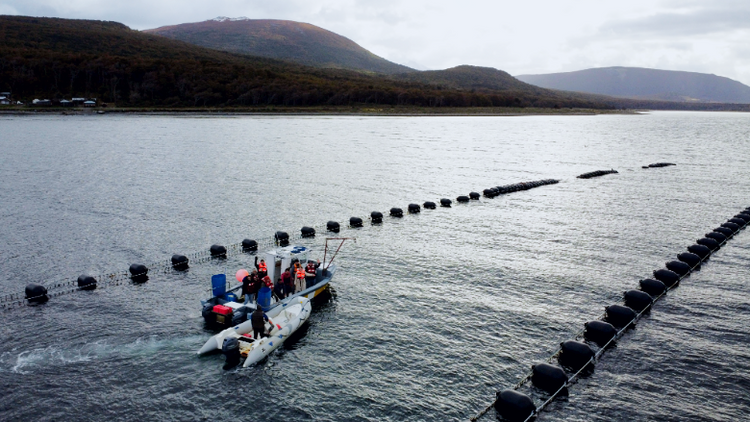Argentina: The food of the future is cultivated in the sea

A World Bank analysis of the value chains of pacú, rainbow trout and mussel shows these species could become pillars of a new blue economy, generating jobs, healthy food and foreign exchange.
Although Argentine aquaculture is growing and produced a record of more than 6 thousand tons of feed in 2022, it has not yet reached the level of other countries with similar natural conditions.
Supported by PROBLUE, a multi-donor trust fund administered by the World Bank, the study pinpointed strategies to help Argentina fully leverage its marine potential.
Strategies for competitive, innovative and responsible aquacultureArgentina has 6,500 km of coastline and 40,000 km² of inland waters, but beyond that natural capital, its greatest potential for implementing environmentally friendly farming systems comes from human advantages:
Abundance of raw materials from Argentina's agricultural production. Aquaculture is the most efficient way to transform plant protein generated by agriculture into animal proteins of high biological and commercial value. Argentina has enough raw materials to avoid relying on imported inputs.Legal framework, existing infrastructure. A law (Law 27.231) and a national program (PRONADAC) for the development of the aquaculture sector lay the foundations for orderly and sustainable growth. Existing processing plants and communications network facilitate production and commercialization.Knowledge. Its experience in the production of species such as trout and pacú, and the scientific support embodied in networks such as REFACUA, allow the country to promote innovation and the search for solutions adapted to local conditions.To realize this potential, it’s necessary to:
Invest in research and development: Encourage research into new farming technologies and practices to optimize production and reduce environmental impact.
Promote small-scale aquaculture: Support small-scale producers to ensure equitable distribution of the benefits of this activity.
Strengthen public-private collaboration: Foster collaboration between government, business, and local communities to drive sector development.
Three Species, Three ChallengesThe Program "Supporting the Sustainable Development of Argentine Aquaculture, its Coastal Fisheries and the Blue Economy" analyzed the value chains of the main species of Argentine aquaculture and identified technological challenges for each.
Argentina has all the tools to become a global leader in the sustainable production of aquatic food.
By leveraging its natural resources, experience in large-scale production, and commitment to sustainability, the country can contribute to ensuring global food security and protecting the oceans for future generations.









































